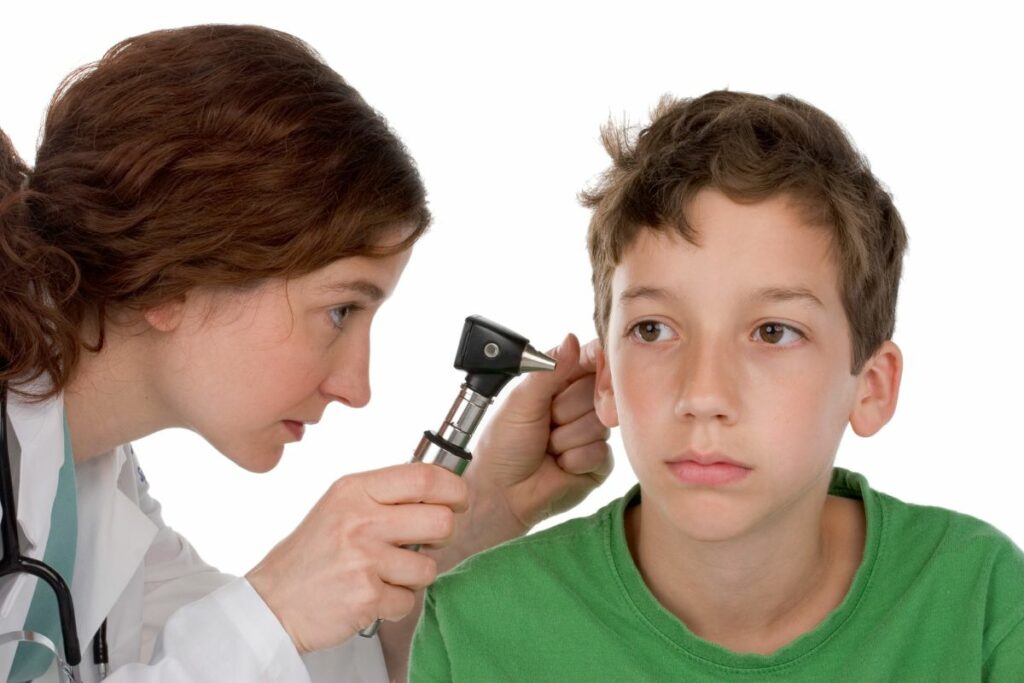Know about Prevention and Diagnosis of Ear Infection in Summer from Pediatric ENT Specialist Dr. Shree Rao
Introduction
During summer, everyone wants to escape from the confines of everyday life. We all find much needed relaxation and rejuvenation after a refreshing dip in an excellent crystal clear swimming pool. Ear infection in summer are common in children who actively participate in water sports. Whether an experienced swimmer or a beginner, there’s something magical about how water envelops you. Apart from swimming, an evening stroll, a mini picnic at a park or water body, or a dive into the pond, anything will soothe your mind and soul. Swimming not only relieves stress but also gives you physical health and vitality. However, along with the joy of swimming come the risks of the swimmer’s ear, a common condition caused by the water becoming trapped in the ear canal.
What is a swimmer’s ear (External otitis)?
Swimmer’s ear is an infection in the middle ear that often comes when water is trapped in the ear canal. It is also called otitis externa and is utterly different from otitis media. The water in the ear canal creates a moist environment in the ear canal. In that moist environment bacteria grow and cause infection. Infection drains fluid and creates severe pain in the ear. Swimmer’s ears affect primarily children and rarely adults. Ear infection in Summer are mostly caused by any water sports or active swimming. With a bit of knowledge and some preventative measures, you can reduce your risk of developing a swimmer’s ear and escape from ear infection in summer.

How to identify a swimmer’s ear?
If the infection is not treated in time, then it becomes severe. Doctors classify the infection into three types based on intensity: Mild, Moderate, and Severe.
Mild symptoms:
- Itching.
- Redness or swelling in the ear
- Earache
- Ear discharge without smell
Moderate symptoms
- Severe itching
- Severe pain
- Excess fluid drainage
- Frequent ear blockage
- Trouble hearing
Severe symptoms
- Severe pain that spread to the head and shoulders
- Complete ear blockage
- Fever associated with headache and earache
- Severe discharge
- Swelling and redness were seen near the infected site
The main cause of the swimmer’s ear is water in the ear canal, which connects the external ear and eardrum. Other potential causes are:
- Bacteria present in the swimming pool, lakes, rivers, any water bodies and polluted water.
- Frequent use of cotton swabs before and after swimming will damage the sensitive ear layer, which can trigger an infection.
- Eczema.
- Injury to the ear can lead to the cause of infection.
How to prevent swimmer’s ear?
- Use protective gear like earplugs and caps before swimming, taking a head bath, or any other water sports.
- Wipe your ears gently with a dry cotton towel or cloth after swimming.
- Before diving into the pool, check for chlorine content; if excess chlorine is present in the pool, skip the pool.
- Clean your earplugs before and after a shower or swimming
- Do not swim in murky waters, as they contain high levels of harmful bacteria.
- Please do not remove your complete ear wax, because it protects from external dust and bacteria.
- Stop using hydrogen peroxide to clean ears.
- Do not insert hairpins, keys, pencils, or other pointed things into the ear. These items will damage ear tissue and cause infection.
Consult an ENT specialist to treat ear infection in summer season.
Diagnosis and treatment options for swimmer’s ear?
Your ENT doctor will physically examine the condition of your external and internal ear with an otoscope. Infection in the ear is identified by physical examination, and to know the condition of the eardrum, doctors advise diagnostic tests. A ruptured eardrum will eventually result in hearing loss. Identifying and taking the necessary steps will prevent hearing loss.
Treatment options
Treatment options involve cleaning, medication, and surgery
All the discharge, earwax, along with dirt is cleaned to prevent infection from spreading. Cleaning will remove any blood clots, tissues, and external infections to remove the bacterial load and help in speedy recovery. Medication should be followed in addition to cleaning for a complete recovery.
If the symptoms are mild then medication, including ear drops, pain relievers, and antibiotics, are prescribed to cure the infection. Though fungal infections are rare, healthy food, ear cleaning, and necessary medication, including ointments, will provide better relief. Topical antibiotics have better effects than oral antibiotics.
In serious cases, the infection spreads to the internal ear and damages the eardrum, bones, and tissues. Sometimes doctors prescribe necessary surgery to remove the infection and take necessary steps to improve your hearing ability. In such conditions, tympanoplasty is performed to restore hearing.
Home remedies for swimmer's ears
- After having a head bath, swimming, or any other water sports activities, clean and dry your ears.
- Use a dryer to clear any water droplets present in the ear canal instead of a swab.
- Use a humidifier to keep your ears dry and free from bacteria.
- Avoid foods that cause irritation to your ears.
- Maintain a healthy diet and regular exercise.
- Gently massage your ears with onion extract or basil extracts, and make sure that does not enter into the inner ear.
- Follow proper hygiene and prevent ear infection in summer season.
What are the risks and complications involved in a swimmer’s ear?
If left untreated, a swimmer’s ear can lead to some complications and risks:
- In certain conditions, an infection may cause damage to the inner cells in the ear.
- Swimmer’s ear will damage the bones and cartilage present in the inner ear. This condition is called osteoplasty.
- The infection causes temporary hearing loss, which may lead to permanent hearing loss conditions if neglected.
- Infection may spread to the brain and other parts of the neck. This may result in severe hospitalization and complicated surgeries.
Conclusion
Swimmer’s ear is common ear infection in summer, ears condition is painful and uncomfortable. Knowing its symptoms and causes can help in early diagnosis. If you experience symptoms of a swimmer’s ear, like ear pain, swelling, or discharge, seek medical attention immediately. With prompt treatment, most cases of swimmer’s ear can be successfully treated. Escape from complications by getting treatment for the best ENT doctor. Enjoy your summer fun with water, and be cautious with the swimmer’s ears. Take necessary precautions and protect your ears from infection. Protect your ears and stay healthy. By doing so, you’ll be able to fully embrace all of the joys that summer offers without worrying about this painful condition.

Why consult EarSurgeon, Dr. Shree Rao?
Dr. Shree Cuddapah Rao is acclaimed as one of the best pediatric ENT specialists in Hyderabad. With 10+ years of deep domain experience in the field of ENT, she is the director at Dr. Rao’s ENT Super Specialty Hospital. She underwent specialized training in Rhinoplasty / Facial Plastic surgery at Singapore General Hospital, Singapore. She also underwent advanced training in cochlear implant surgery under Padmashri Dr. Milind V Kirtane and had a Fellowship in a cochlear implant. Having performed over 200 successful cochlear implants for patients worldwide, Dr. Shree Cuddapah Rao is also the recipient of several prestigious accolades in the domain of ENT. Dr. Shree Rao is one of the best ent doctor in hyderabad, to book an appointment click here.
Are you looking for
then you have landed at right place!







